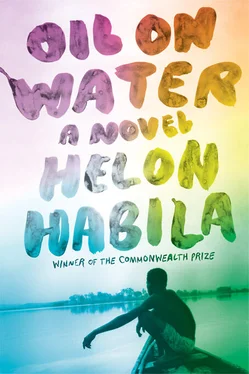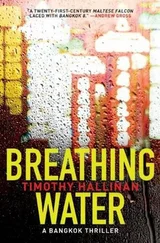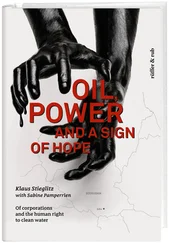The next day I sat on my mat, staring at Zaq, saying nothing, eating when the women brought food, going to the outhouse when I was pressed. When the sun had traveled all the way across the sky and still nothing had happened, no one had come to talk to us, I lay on my back and closed my eyes. I conserved my energy, as Zaq had suggested. Boma would be worried by now, wondering what had happened to me.
— If we were to go after the woman, all the way, how would we get off the island? We don’t have a boat, we don’t know where the militants are camped. .
Perhaps I spoke out of desperation, knowing that my job might not be waiting for me when I got back to Port Harcourt. Or perhaps I was swayed by Zaq’s promise of starting a real paper, or maybe a secret part of me had always been waiting for a chance like this, I didn’t know, but suddenly I was excited. I wanted to go after the kidnapped woman, to find out what really happened, to interview the Professor. .
— But we have money.
Zaq was smiling as he brought out his brown envelope.
— I’m sure we can get some local guide, some fisherman who knows his way around.
— And then—
— The rest we will deal with when we come to it.
But, as it turned out, we didn’t have to go looking for a boat — one came to us. Early in the morning, before the cocks began to crow, there was a tentative knock on the door. Zaq and I jumped up at the same time, but I got there before him. I stared at our visitor with disappointment. It wasn’t Gloria. It was the old boatman, looking as unobtrusive, as natural, as the grass and the trees outside. The morning light fell on his frayed homespun shirt and bare feet, and on the long oar in his hand, held against his chest.
— What do you want?
— Oga Naman send me. He say make I carry you go where you wan go, but you must come quick-quick.
Zaq and I looked at each other and we didn’t wait for him to repeat his offer. We followed him to the boat and soon Irikefe Island was behind us, swallowed by the distance and the darkness of the mist that rose like smoke from the riverbanks. Midriver the water was clear and mobile, but toward the banks it turned brackish and still, trapped by mangroves in whose branches the mist hung in clumps like cotton balls. Ahead of us the mist arched clear over the water like a bridge. Sometimes, entering an especially narrow channel in the river, our light wooden canoe would be so enveloped in the dense gray stuff that we couldn’t see each other as we glided silently over the water.
It felt surreal to be back again on the island, trapped again, butthis time not by harmless priests and worshippers, but by the Major and his soldiers. Many times in the night Zaq had woken up agitated and sweaty, looking at me as if trying to remember where he had seen me before. Then I’d hold his hand and shout his name, attempting to penetrate the fog in his eyes, but they just looked at me, confused and teary, growing cloudier every minute. And at last, when Zaq went back to sleep, I let go of his hand and sat with my head bowed. I felt cold and nauseous. Perhaps I was coming down with a fever. I wanted to stay awake, but every so often I’d nod off, only to be jerked back to consciousness by Zaq’s voice, low and faint, coming from a measureless distance, asking for a drink.
— A drink. Just a sip. One sip, please.
It’d be a miracle if he lasted the night. I felt the tiredness and the hopelessness weigh down on me and, not knowing what I was doing, I turned to him and grabbed his hand, my arm shaking as badly as his.
— What are we doing here, Zaq? It makes no sense. No sense.
Toward dawn I fell asleep, and when I woke up I found Zaq and Naman whispering together, and I couldn’t conceal my surprise at how fresh and rested they both appeared. Zaq was sitting without help, and talking lucidly. He smiled at me.
— Hello.
— Where is Boma?
— Somewhere about.
The soldiers herded us to the water to do our morning ablutions, the women behind a huge boulder away from the men. I watched the men wade in and out, dipping their faces into the water and washing under their armpits, their faces blank, their motions mechanical. Some tried to wash the blood spots off their white robes, without much success. I sat with them on the beach as they waited for their robes to dry, some dressed only in their trousers and some in underpants, their eyes lost, faraway. After a while I noticed that the people were moving back to the campsite. Ahead a soldier was waving them forward toward the Major, who was making an address. He was standing on a huge, still smoldering log, looking over the heads of the people, his uniform and his boots as spotless as ever. He raised his rifle and pointed around with it, calling for silence.
— It has come to our attention that the militants who killed our men yesterday, and who caused this massive destruction upon your island, are still out there, not far from here, perhaps planning another attack.
The men looked at each other wearily, while the women pulled the children closer.
— We are also aware that among us here, there are some who are sympathetic to the militants, who are in cahoots with them. We will find you and we will deal with you. We will return fire for fire. As long as you do what we tell you, you will be safe. Nothing will happen to you. You will be confined to this island for at least one week. No going, no coming. You have enough food here on the island. And for those of you who are wounded, we have a doctor. He will be brought here today to attend to your wounds. He is good, he saved my life once when I—
A murmur began among the people and it soon turned into an uproar. The Major stopped talking and looked down at the people. His men raised their rifles nervously and the uproar died out as quickly as it had started. The Major lowered his rifle and turned his back on the crowd.
— You are dismissed.
— YOU CAN SLIP AWAY quite easily if you want to.
I looked at Zaq. He and Naman had been in a huddle again since we returned from listening to the Major, and I had been wondering what it was they were whispering about, but now I knew. Far away, next to the rubble that had been the communal kitchen, a sort of field kitchen had been set up, supervised by the women, who were in turn supervised by the soldiers. A line of hungry men, women and children had formed in front of the triangular hearths.
— Slip away and go where? Besides, my sister is here. I have to look after her. And you, Zaq, we have to get you to Port Harcourt.
— I’ll be fine, and so will your sister. The worst is over, I think.
Boma was with the group of women at the hearth. I could see her red blouse standing out in the cluster of white robes around her. She was laughing as she bustled about, organizing the children into a neat line, ladling porridge from a pot into cups and bowls. She looked really happy, and for a moment I almost started to believe that the worst really was over.
— What do you want me to do?
— It’s not what we want you to do, it’s what must be done, and the truth is, you are the only one in a position to do it.
— What do you want me to do?
— Slip away. Go to Port Harcourt and tell the editors what’s happening here. We’re trapped here for at least a week — you heard what he said. No one out there knows what’s going on here. These people need help. Soon, in a day or two, if they don’t get it, they’ll start dying. .
— My editor won’t listen to me. I’ve lost my job.
— Go to Beke, my editor. He is a resourceful person. He has his faults, but he can talk to the other editors. He has good contacts in Lagos. Tell him what’s going on here. You have to do it, you have to do it now.
Читать дальше












